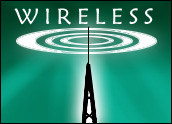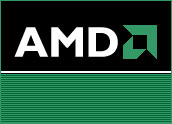
EarthLink and Google submitted a joint request for proposal (RFP) this week to bring San Francisco workers and residents free citywide wireless access.
As part of the deal, EarthLink would pay most of the projected US$15 million cost to build the wireless municipal network and would recover some of those costs by charging approximately $20 per month for Web access at higher speeds.
On Google’s side, the free WiFi access will be funded by advertisements, according to the companies.
Open Access Philosophy
“By coming together to leverage the strengths of both companies, we will be able to offer services to different customers on the network that fit with their own individual needs and wants,” said Donald Berryman, executive vice president of EarthLink and president of the ISP’s municipal networks unit.
This latest RFP is in line with the company’s belief in open access, according to Berryman. EarthLink previously won a similar 10-year deal with the city of Philadelphia.
“These municipal networks should offer the tools, services and applications that businesses, governments and consumers want to use to enable, enrich and empower their Internet experiences,” he commented.
The two companies are competing with a handful of other finalists, including another partnership between Cisco Systems, IBM and SeaKay. The city of San Francisco is expected to select the winning bid in April.
The Profit Question
Tremendous hype has been surfacing around citywide wireless in the past 18 months as more than 100 municipalities have issued RFPs for such networks, according to Ellen Daley, principal analyst at Forrester Research.
Rather than waiting to see if cities can compete with wireless providers, EarthLink, Google and others took the proactive approach and offered to build the network themselves, she told TechNewsWorld.
“The unknown question [of whether they can be profitable] has a lot to do with how people buy telecom services,” she said. “Are they willing to have a less reliable network for less money, or will competition hang on the DSL side? Can there be any price point Verizon or AT&T isn’t willing to [offer]?”
The Real Winners
Although Google, EarthLink and city executives stress the importance of providing affordable Internet access for lower-income residents, the true beneficiaries are the municipalities focusing on operational improvements, Daley said.
There would be definite advantages for mobile field workers as well, EarthLink pointed out. “WiFi solutions allow them to be more effective and efficient in their jobs,” Jerry Grasso, director of corporate communications for the firm, told TechNewsWorld.
“Many U.S. cities have the vision, but need a partner that can execute that vision and deliver the tools and services to create a great Internet experience,” he added.
Evil-Twin Threat
Security is an important area to monitor, though. Viruses and worms are always a concern, but there are more potential threats with wireless access, according to Daley.
“There’s an evil-twin threat. There may be a rogue player who will try to put up a network that looks like the true network and try to get you to connect to it,” she explained.
Once that happens, the user could be directed to phishing sites where they might be induced to enter private information that could then be stolen. “These types of attacks, though rare, can still happen,” Daley warned.
Although Grasso admitted they are an “obvious concern,” he said EarthLink would not discuss security issues. Instead, he pointed to examples of other places where similar systems are succeeding.
“There are other WiFi networks up and running in smaller markets that have security measures in place — and don’t forget the plethora of traditional WiFi hotspots nationwide,” he said. “It’s fair to say that this is not an untested technology.”





















































